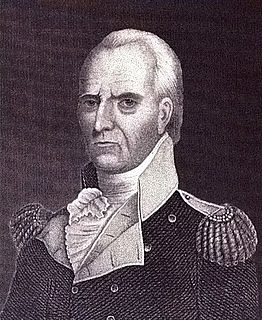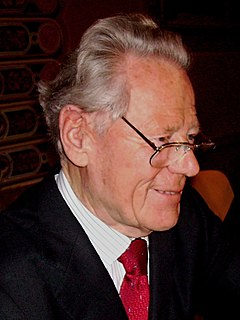A Quote by Thomas Jefferson
The Declaration of Independence . . . [is the] declaratory charter of our rights, and the rights of man.
Quote Topics
Related Quotes
Thomas Jefferson understood the greater purpose of the liberty that our Founding Fathers sought during the creation of our Nation. Although it was against the British that the colonists fought for political rights, the true source of the rights of man was clearly stated in the Declaration of Independence. Jefferson wrote that all humans are endowed by their Creator with certain unalienable Rights . . . . It was self-evident to him that denying these rights was wrong and that he and others must struggle to win what was theirs.
It is up to each and every one of us to raise our voice against crimes that deprive countless victims of their liberty, dignity and human rights. We have to work together to realize the equal rights promised to all by the United Nations Charter. And we must collectively give meaning to the words of the Universal Declaration of Human Rights that "no one shall be held in slavery or servitude"
I am now-the friend of the equal rights of men, of representative democracy, of republicanism and the Declaration of Independence, the great charter of our national rights; and of course the friend of the indissoluble union and Constitution of the states. I am the enemy of all foreign influence, for all foreign influence is the influence of tyranny. This is the only chosen spot of liberty-this is the only republic on earth." "Live Free Or Die; Death Is Not The Worst Of Evils.
We should remember that the Declaration of Independence is not merely a historical document. It is an explicit recognition that our rights derive not from the King of England, not from the judiciary, not from government at all, but from God. The keystone of our system of popular sovereignty is the recognition, as the Declaration acknowledges, that 'all men are created equal' and 'endowed by their Creator with certain unalienable Rights.' Religion and God are no alien to our system of government, they're integral to it.
The founding of our Nation was more than a political event; it was an act of faith, a promise to Americans and to the entire world. The Declaration of Independence declared that people can govern themselves, that they can live in freedom with equal rights, that they can respect the rights of others.
The Declaration of Independence was to set forth the moral justification of a rebellion against a long-recognized political tradition - the divine right of kings. At issue was the fundamental question of whether men's rights were God-given or whether these rights were to be dispensed by governments to their subjects. This document proclaimed that all men have certain inalienable rights. In other words, these rights came from God.
the right to marry whoever one wishes is an elementary human right ... Even political rights, like the right to vote, and nearly all other rights enumerated in the Constitution, are secondary to the inalienable human rights to 'life, liberty and the pursuit of happiness' proclaimed in the Declaration of Independence; and to this category the right to home and marriage unquestionably belongs.
In its main features the Declaration of Independence is a great spiritual document. It is a declaration not of material but of spiritual conceptions. Equality, liberty, popular sovereignty, the rights of man - these are not elements which we can see and touch. They are ideals. They have their source and their roots in the religious convictions. They belong to the unseen world. Unless the faith of the American people in these religious convictions is to endure, the principles of our Declaration will perish. We can not continue to enjoy the result if we neglect and abandon the cause.
The Bible and its teachings helped form the basis for the Founding Fathers' abiding belief in the inalienable rights of the individual, rights which they found implicit in the Bible's teachings of the inherent worth and dignity of each individual. This same sense of man patterned the convictions of those who framed the English system of law inherited by our own Nation, as well as the ideals set forth in the Declaration of Independence and the Constitution.
When Thomas Jefferson wrote the Declaration of Independence, declaring that all men were created equal, he owned slaves. Women couldn't vote. But, throughout history, our abolitionists, suffragettes, and civil rights leaders called on our nation, in reality, to live up to the nation's professed ideals in that Declaration.































